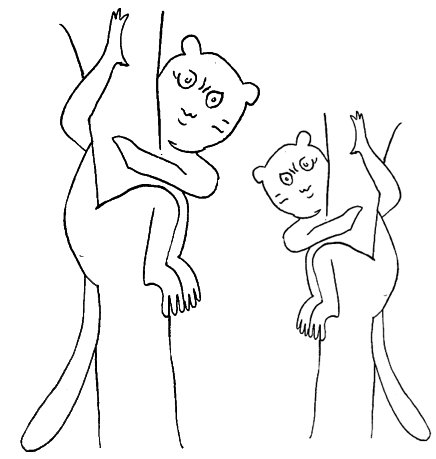
保健領域におけるソーシャル・メディア
Social Media in Health

☆保健領域におけるソーシャル・メディアの利用や活用した社会活動には、思春期の若者への対応、パンデミック、依存症、などがある。
| Health Further information: Cyberpsychology § Social media and cyberpsychological behavior, and Social media and identity Adolescents Social media can offer a support system for adolescent health, because it allows them to mobilize around health issues that they deem relevant.[172] For example, in a clinical study among adolescent patients undergoing obesity treatment, participants' claimed that social media allowed them to access personalized weight-loss content as well as social support among other adolescents with obesity.[173][174] While social media can provide health information, it typically has no mechanism for ensuring the quality of that information.[174] The National Eating Disorders Association reported a high correlation between weight loss content and disorderly eating among women who have been influenced by inaccurate content.[174][175] Health literacy offers skills to allow users to spot/avoid such content. Efforts by governments and public health organizations to advance health literacy reportedly achieved limited success.[176] The role of parents and caregivers who proactively approach their children with ongoing guidance and open discussions on the benefits and difficulties they may encounter online, demonstrate some reductions in overall anxiety and depression among adolescents.[177] Social media such as pro-anorexia sites reportedly increase risk of harm by reinforcing damaging health-related behaviors through social media, especially among adolescents.[178][179][180] Pandemic During the coronavirus pandemic, inaccurate information from all sides spread widely via social media.[181] Topics subject to distortion included treatments, avoiding infection, vaccination, and public policy. Simultaneously, governments and others influenced social media platforms to suppress both accurate and inaccurate information in support of public policy.[182] Heavier social media use was reportedly associated with more acceptance of conspiracy theories, leading to worse mental health[183] and less compliance with public health recommendations.[184] Addiction Social media platforms can serve as a breeding ground for addiction-related behaviors, with studies report that excessive use can lead to addiction-like symptoms. These symptoms include compulsive checking, mood modification, and withdrawal when not using social media, which can result in decreased face-to-face social interactions and contribute to the deterioration of interpersonal relationships and a sense of loneliness.[185] |
健康・保健 詳細情報:サイバー心理学 § ソーシャルメディアとサイバー心理学的行動、およびソーシャルメディアとアイデンティティ 思春期 ソーシャルメディアは、思春期の健康に対する支援システムを提供し得る。なぜなら、彼らが重要と考える健康問題について結束する手段となるからだ。 [172] 例えば、肥満治療を受ける思春期患者を対象とした臨床研究では、参加者はソーシャルメディアが肥満に悩む他の思春期層との社会的支援に加え、個人に合わせ た減量コンテンツへのアクセスを可能にしたと主張した。[173][174] ソーシャルメディアは健康情報を提供できるが、通常はその情報の質を保証する仕組みを持たない。[174] 全米摂食障害協会は、不正確な情報に影響を受けた女性において、減量コンテンツと摂食障害の間に高い相関関係があると報告している。[174][175] 健康リテラシーは、ユーザーがそのようなコンテンツを見分け回避するスキルを提供する。政府や公衆衛生機関による健康リテラシー向上の取り組みは、限定的 な成果しか得られていないと報告されている。[176] 親や保護者が積極的に子供に働きかけ、継続的な指導やオンライン上で遭遇する可能性のある利点・困難についての率直な議論を行う役割は、青少年の全体的な 不安や抑うつをある程度軽減することを示している。[177] プロ・アノレキシア(拒食症推奨)サイトなどのソーシャルメディアは、特に青少年の間で、健康を損なう行動を助長することで危害リスクを高めると報告されている。[178][179][180] パンデミック コロナウイルスパンデミック中、あらゆる方面からの不正確な情報がソーシャルメディアを通じて広く拡散した。[181] 歪曲の対象となったトピックには、治療法、感染回避策、ワクチン接種、公共政策が含まれた。同時に、政府などは公共政策を支援するため、ソーシャルメディ アプラットフォームに影響を与え、正確な情報と不正確な情報の両方を抑制した。[182] ソーシャルメディアの使用頻度が高いほど、陰謀論への受容性が高まり、精神健康の悪化[183] や公衆衛生上の推奨事項への順守低下につながると報告されている。[184] 依存症 ソーシャルメディアプラットフォームは依存症関連行動の温床となり得る。研究によれば、過度な利用は依存症に似た症状を引き起こす。これらの症状には、強 迫的なチェック行為、気分変動、ソーシャルメディア非使用時の離脱症状が含まれる。これにより対面での社会的交流が減少し、対人関係の悪化や孤独感の増大 に寄与する可能性がある。[185] |
| https://en.wikipedia.org/wiki/Social_media |
「ソーシャル・メディア」よりスピンオフ |
リ ンク
文 献
そ の他の情報
CC
Copyleft,
CC, Mitzub'ixi Quq Chi'j, 1996-2099